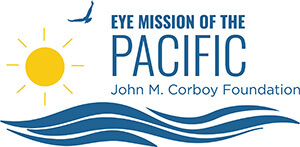Benefits Broker Conversation
Benefits can be difficult to understand. If you’re having trouble, check out this conversation with benefits broker, Susan Kroger of Intermediary Services, LLC in Lake Oswego, OR!
What should you expect when you work with a benefits broker?
Insurance can be complicated. When you work with a benefits broker, you get an independent agent who can represent many insurance companies and put things into simple terms. They are local, licensed experts who bring you choices and can advocate on your behalf.
What sort of benefits can I expect to use a benefits broker for employee benefits?
Life and Health certified agents can represent a variety of benefits including Group Medical, Prescription, Dental, Vision, Life & A.D.D., Short and Long Term Disability, Ancillary Coverage, Temporary plans, Individual Plans, Exchange Plans, Employee Assistance Programs, and Wellness Programs.
What are some trending Employee Benefits?
Alternative Care benefits such as Naturopath, Massage, Chiropractic, and Acupuncture benefits have been very popular. Generally speaking, these office visits cost less than a traditional Primary Care or Specialist visit, and they offer a different method of treating chronic pain and other disorders.
For example, acupuncture improves physical and emotional outcomes for conditions such as lower back pain, headaches, and osteoarthritis.
Can clients expect assistance with compliance solutions?
Absolutely. A benefits broker understands the role of the employer with regard to Small Group and Large Group regulations in their state. A benefits broker also understands federal regulations such as the Affordable Care Act, ERISA, HIPAA, COBRA, GINA, and how those laws integrate with regulating entities such as the Internal Revenue Service, Center for Medicare Services and the Department of Labor. Some brokerage agencies may have their own compliance department, while others will partner with local or national experts.
Can you assist with claims or the relationship with the insurance provider?
Agents will always be an advocate for the employer, but the ability to work on individual claimant history is subject to HIPAA guidelines. Insureds medical or claims history is always considered Protected Health Information (PHI) and would require permission in writing from that individual in order for the Agent to communicate directly with the insurance claims department.
How do you help with open enrollment?
Communication and Conversation. Enrollment is that period of time each year when employees can sign up for health and benefit elections without any special questions or circumstances regarding their election.
As benefit brokers, we make sure insureds understand each of the benefits being offered and once elections are made, those decisions can only be changed during “life events” or “changes in family status”.
A change in family status can be: marriage, divorce, aging off a parent’s plan, having a baby, etc. Agents educate on coverage, contract terms, price, and comparative options and help to review plan benefits for whatever stage you are at in life.
I am an employer group who has employees that are eligible or enrolled in Medicare – how does that impact my group insurance?
If you are an employer with more than 20 employees then generally the Group Health Plan (GHP) pays first. For small employers with less than 20 employees, then generally Medicare pays first.
The exception is small employers with less than 20 employees who are part of a multiple employer plan. At this point, the Medicare Secondary Payor rules may apply unless you file for an exception.
The multi-employer GHP must request an exception to the Working Aged MSP rules which must be approved by the Benefits Coordination & Recovery Center (BCRC) at The Centers for Medicare & Medicaid Services.
